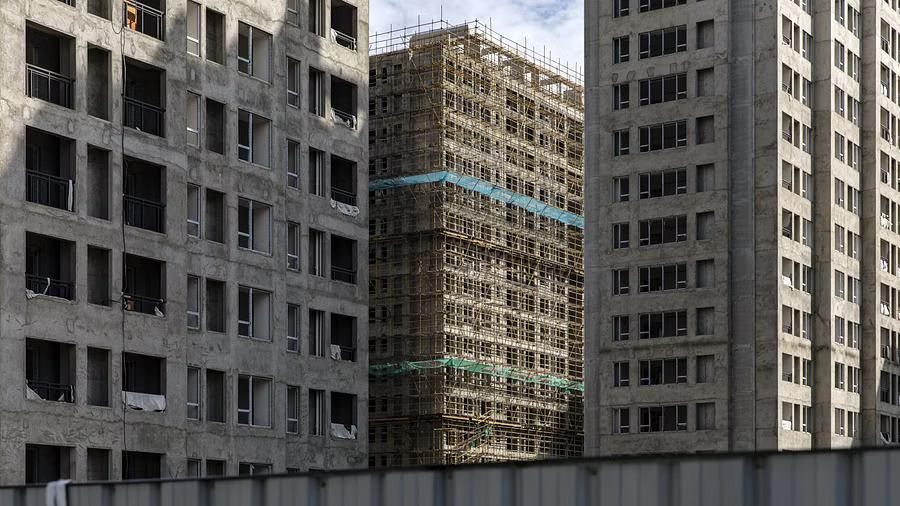China’s ongoing real estate crisis continues to pose significant challenges for policymakers and authorities, with its complex dynamics and wide-ranging implications making it a formidable issue to resolve. Despite concerted efforts, the nation struggles to find a comprehensive solution to this multifaceted crisis that has both economic and social ramifications.
The real estate crisis, characterized by soaring property prices, excessive debt in the property sector, and housing unaffordability for many citizens, is a result of multiple interconnected factors. While the Chinese government has taken steps to curb speculation and control housing prices, the task at hand remains daunting.
The primary reasons behind the difficulty in addressing the real estate crisis are outlined below:
Economic Dependencies: The real estate sector has been a significant driver of China’s economic growth, contributing to a substantial portion of the country’s GDP. Attempts to drastically deflate the property bubble risk causing economic shocks, such as a slowdown in growth and unemployment, which the government is keen to avoid.
Local Government Financing: Local governments in China heavily depend on land sales for revenue. Selling land to property developers has been a crucial source of income, which complicates efforts to rein in the real estate market as it directly impacts local budgets and projects.
Homeownership as Investment: A large portion of Chinese citizens view homeownership as an attractive investment opportunity rather than just a place to live. This mindset fuels demand and speculation, making it difficult to regulate the market without affecting investor sentiment.
Debt Overhang: The real estate sector’s heavy reliance on borrowing has led to a significant debt burden for developers and financial institutions. Addressing the crisis requires careful management to prevent a broader financial crisis from unfolding.
Ensuring affordable housing for citizens is critical for maintaining social stability. High housing costs have led to concerns about social inequality and unrest, making it imperative for the government to address this issue cautiously.China’s real estate market is interconnected with global financial markets through various investment channels. A sharp correction in the property market could have ripple effects on international markets, adding another layer of complexity.
Gradual Policy Implementation: The Chinese government often opts for gradual policy changes to mitigate potential shocks. However, this approach might not yield immediate results in tackling the urgency of the real estate crisis.
While China is taking steps to address the real estate crisis, such as implementing stricter lending regulations and supporting affordable housing projects, the intricate web of economic, financial, and social factors makes finding a comprehensive solution a formidable task. Balancing the need for stability, economic growth, and social equity will require a delicate and well-calibrated approach by Chinese authorities.










